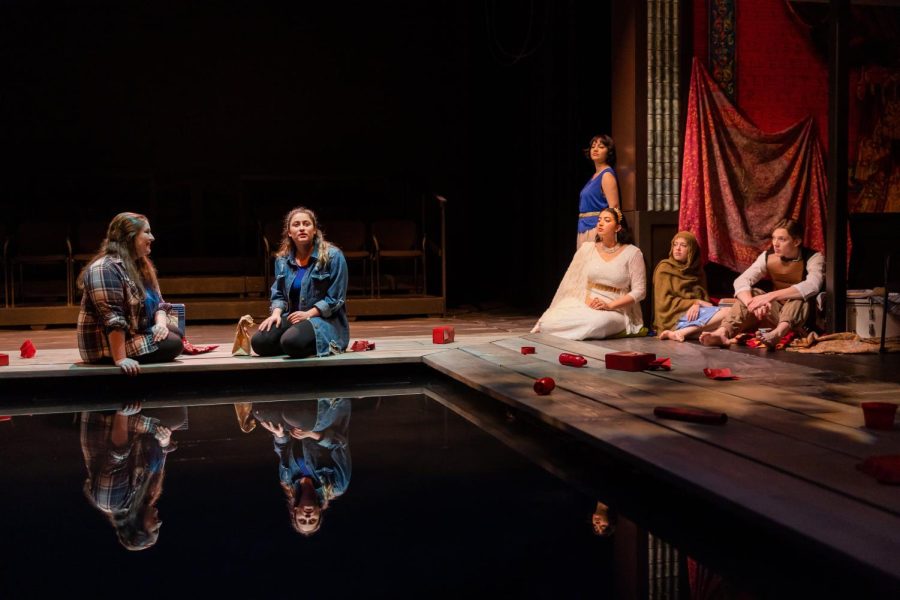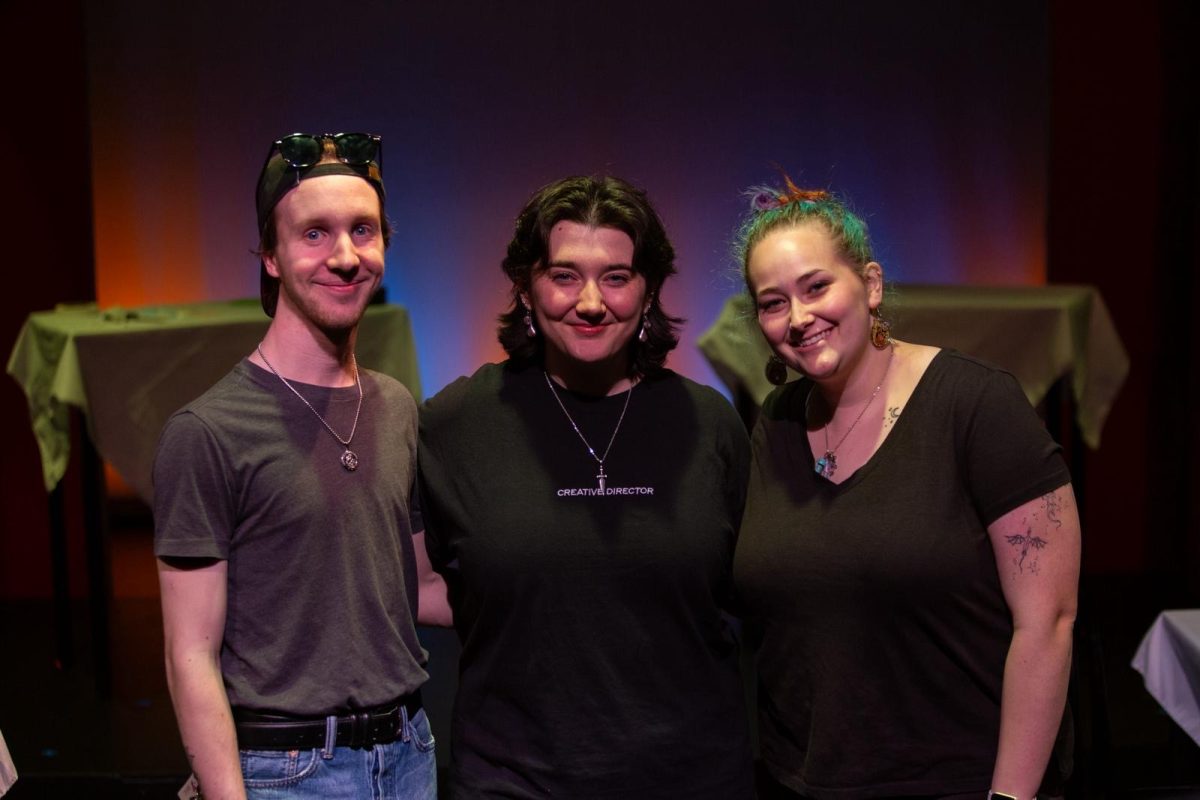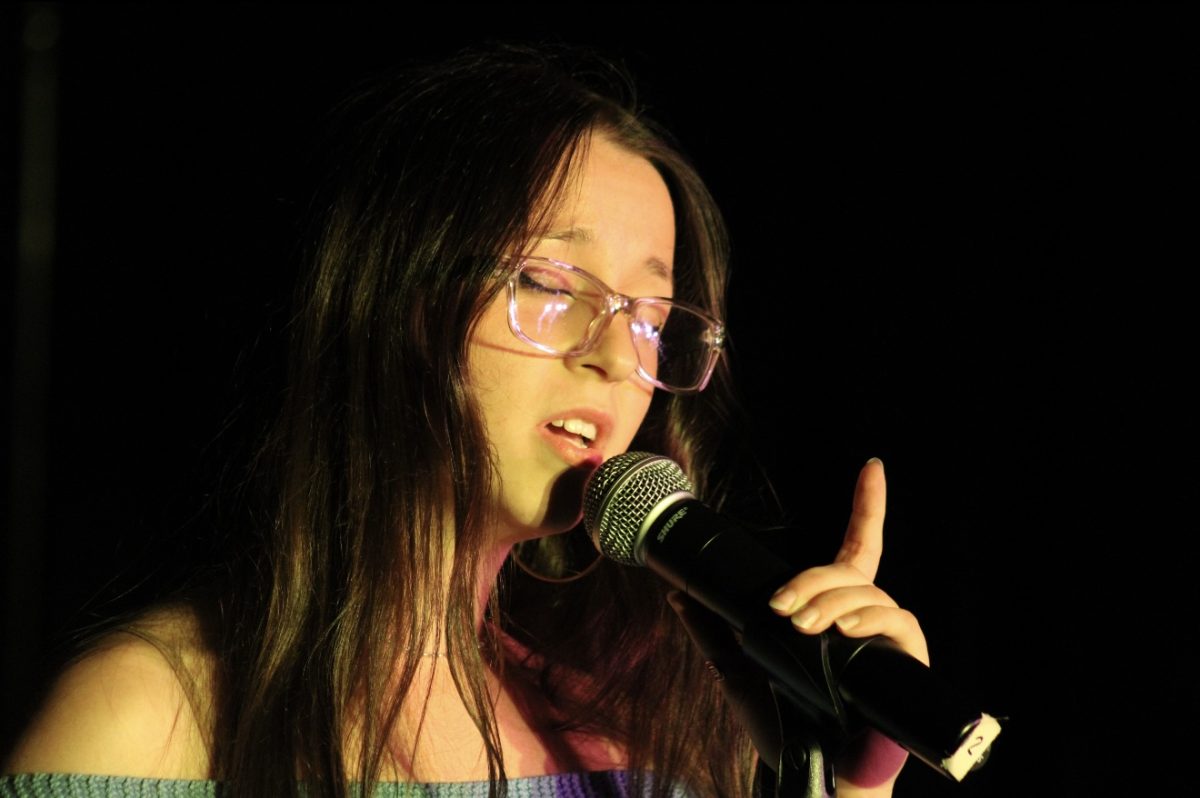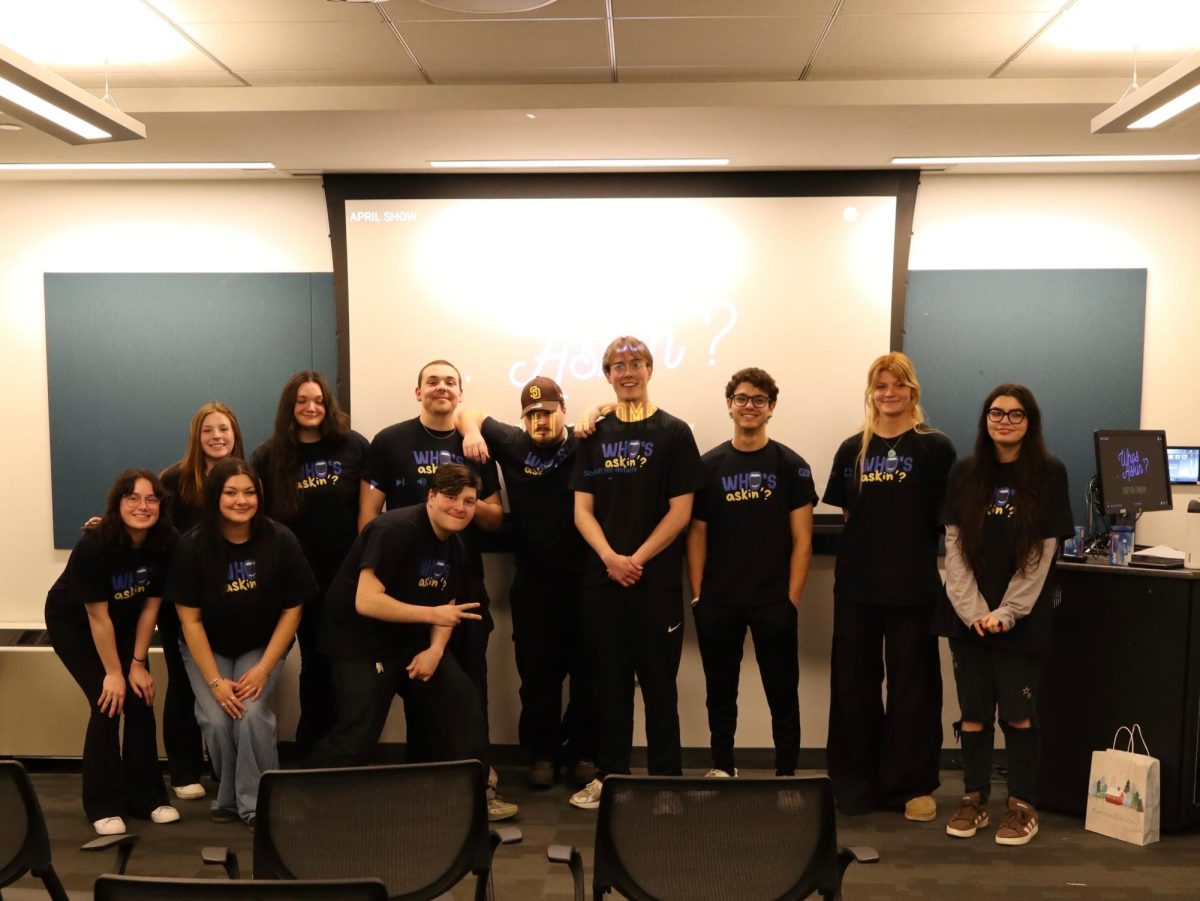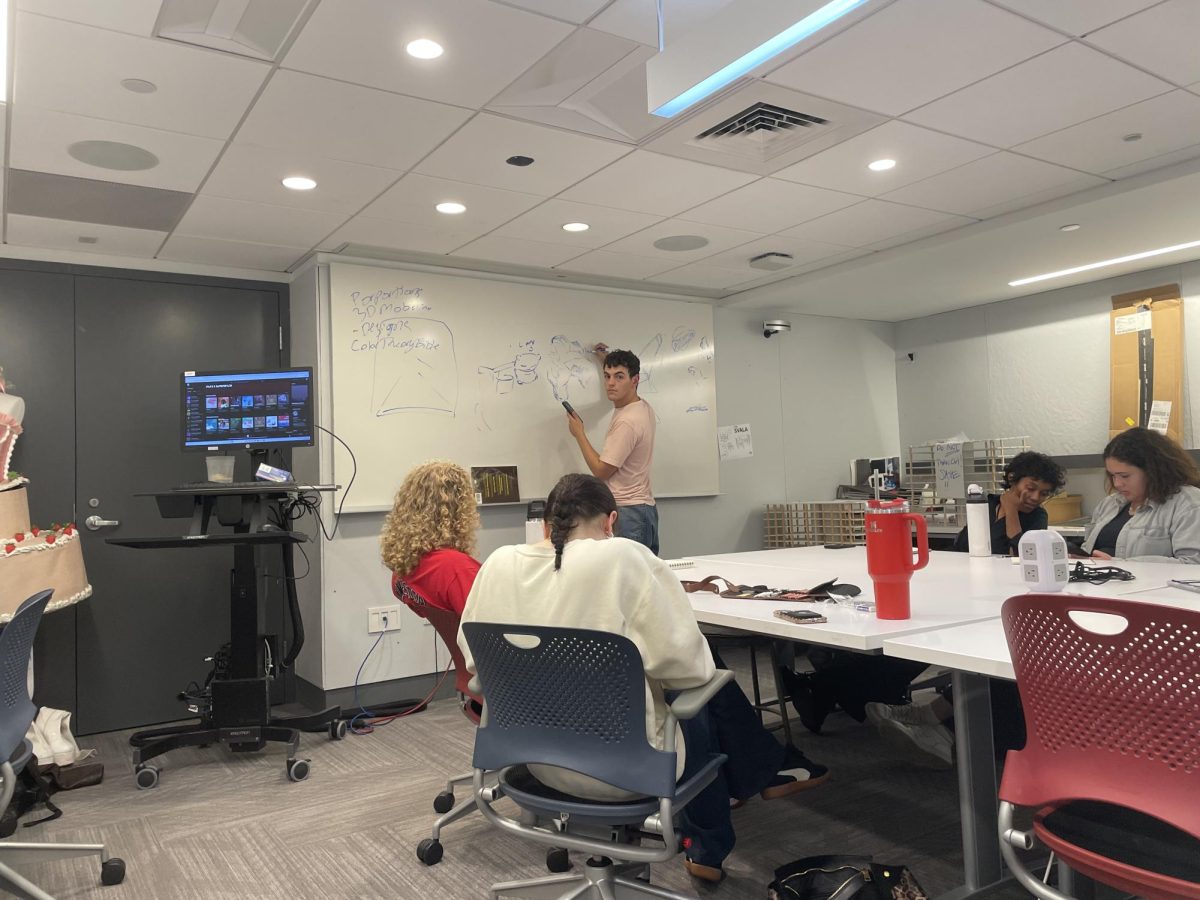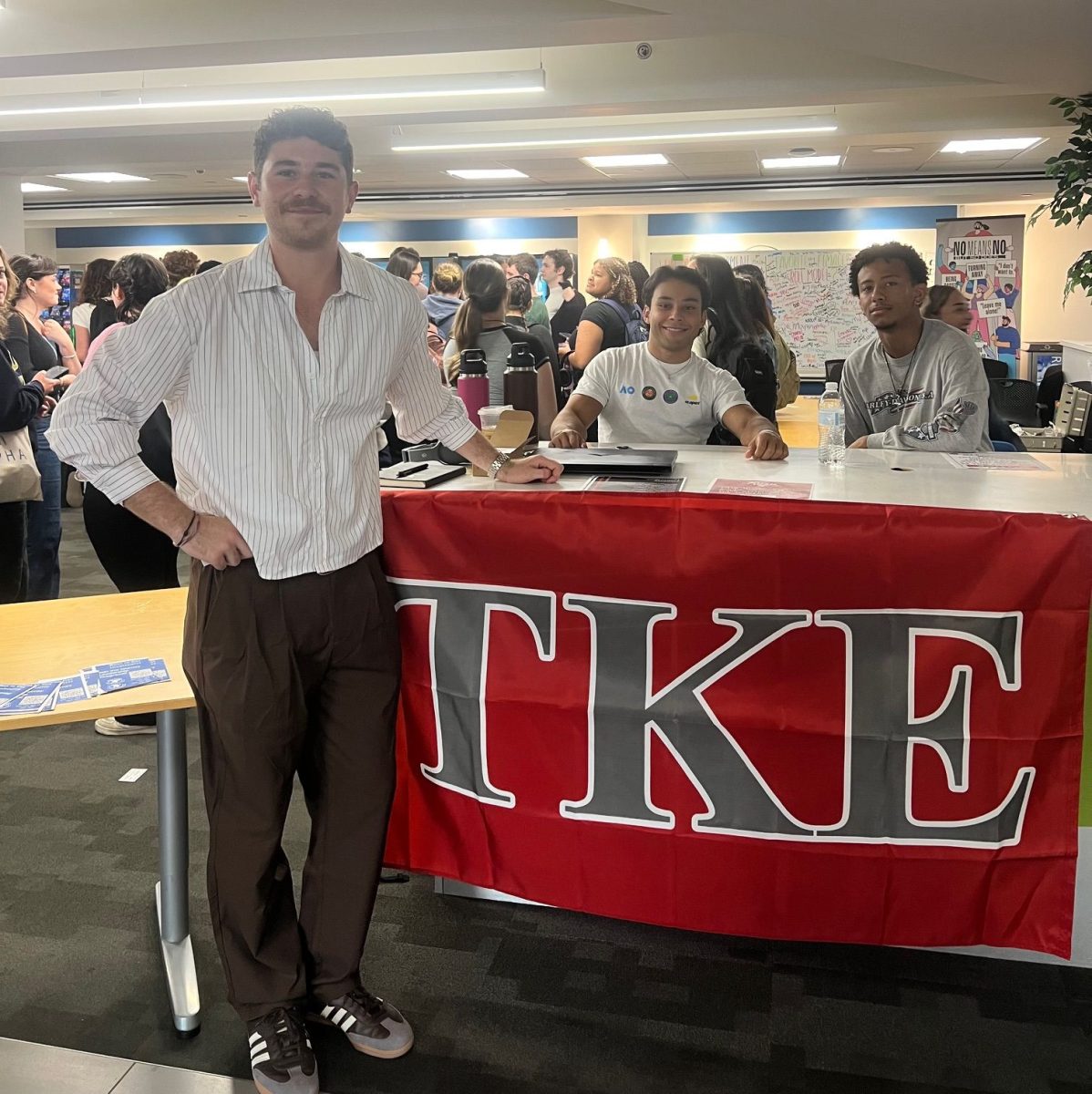The Suffolk University Theatre Department presented their magical rendition of Ovid’s “Metamorphoses” at the Modern Theatre from Nov. 17-20. The play invited viewers to reflect on themes of transformation through the telling of Greek and Roman myths.
The original play was written and directed by Mary Zimmerman and premiered in 1996 at Northwestern University.
This version of “Metamorphoses” is directed by Nora Long, making it the second play she has worked with Suffolk on, the first being Virginia Woolf’s “Orlando” in 2017.
Long first saw Zimmerman’s version of the show during her senior year of college in New York. Since then, she has been waiting for an opportunity to direct the play herself.
“Metamorphoses is a play that I’ve loved for a long time, but it very famously takes place in and around a body of water which is very complicated for a theater to do,” she explained. Still, she suggested it to the theater department and to her surprise, it was approved.
Long’s goal was to create “a world in trouble, a world in peril, that through the power of storytelling and the collective action of the group, transforms for the better.”
Freshman Yusra Tafraoui, who played Aphrodite, first became involved with theater at Suffolk in the fall showcase.
“[Long] took on that script like it was the end of the world for her. You can really tell she thought about every action and every story and she made it meaningful in her own way. She made twists where it’s comedic and it’s lovely and wholesome, even brutal at some points,” Tafraoui said.
On opening night, the nearly full theater buzzed with excitement as audience members sat in anticipation. The Modern had gotten a few upgrades — light fixtures, a clothesline and, of course, a pool.
Surrounding the pool were pieces of red trash. Throughout the show, these pieces slowly got picked up by members of the cast, a way of expressing the transformations not only the characters were experiencing, but the earth beneath them as well.
One of the first stories told in the play was the tragedy of Midas (Robert Fennessey-Stevenson Jr.), the man who wished that everything he touched would turn into gold. Shortly after receiving his wish, he realized too late that it was a curse when he accidentally turned his daughter (Rama Hejazi) into gold.
Some stories had happier endings. “The Gods are not altogether unkind, some prayers are answered,” said the narrator during the story of Ceyx (Samuel Hackett) and Alcyone (Emily Pascucci).
When Alcyone found out Ceyx drowned on his voyage, in her grief, she transformed into a bird. The Gods had compassion for the two lovers and allowed Ceyx to come back to life as a bird as well so they could be together again.
Other parts of the play were more lighthearted. Senior Vincent Douglass earned himself some laughs from the audience in his roles as Silenus and Phaeton. As a huge fan of Greek mythology, he was really excited to work on “Metamorphoses.”
“The whole show is really about community and coming together and the various shapes of love and I connect to that core value of needing other people to succeed, and finding happiness in community,” Douglass said.
Still other stories were more complex. In the telling of Orpheus (Katie O’Neill) and Eurydice (Kate Carvalho), Eurydice was killed by a snakebite on their wedding day.
Torn with grief, Orpheus ventured into the Underworld where he met Hades (Alessandro Odoguardi) and Persephone (Abby Mae Lougee).
Orpheus begged for his bride back, and ended up convincing Hades and Persephone, under one condition. “As you ascend and leave this place, she will not walk beside you; but she will be following. You must not, until you pass our gates, turn around and look at her. If you look at her before you reach the sunlight, she is ours. Forever,” recited Hades.
Since this is a Greek tragedy, Orpheus ends up turning around, not quite believing this wasn’t all part of his imagination. Eurydice is lifted away by Hermes (Nathan Lavoie) as she reaches for Orpheus and says “Farewell.”
This scene is repeated four more times, as the narrators ask “Is this a story of love and how it always goes away?,” “Is this a story of how time can only move in one direction?” and “Is this the story of an artist, and the loss that comes from sudden self-consciousness or impatience?” each time Eurydice is lifted away.
Their story may have ended here, but this version of the play included a second ending from Australian poet Rainer Maria Rilke in which Eurydice is content with her fate.
Just this one story brought so many interpretations and lessons to learn and connect with.
“One of the things that I really like about theater and something that I try to do is to create space for the audience to try and respond independently,” said Long. “I think we created a number of different entry points so if you’re feeling optimistic about the world, then you will find connection in the material.”
“Metamorphoses” had an incredible cast and crew that brought the stories to life, led by senior Lisette van den Boogaard as their stage manager. As stage manager, she is the facilitator of communication and organization for the show. Boogaard’s job consists of marking down the actors’ movements, writing reports and updates and running rehearsals during tech week.
“My favorite part of Metamorphoses was my cast and crew that I got to work with. I haven’t worked ever with a cast or a stage management team quite like this where it’s so kind and generous and funny and everyone just wanted to be there,” she said.
Long would agree. “It’s one of the things I missed most about not working at Suffolk anymore full-time: contact with the student body. They are so thoughtful, so generous, so kind and inquisitive, it’s just a real delight,” she said. “Getting to work with a pool wasn’t bad either.”
The team only had one week to rehearse with the pool, and about five weeks without it. Boogaard’s biggest concern was actor safety and health. The actors were only permitted 45 minutes in the water so she had to keep track of everyone’s schedules.
Despite the whole new layer of technical problems the pool came with, it was Douglass’ favorite part. “It’s such a unique design element and working with [Jessica Scout Malone], our fight choreographer, was such an incredible experience. She helped me feel safe with my blocking in the pool and now I’m always just so excited to get in and make a fool of myself.”
As Tafraoui said, “It’s not everyday you get to perform with a pool.”
“Metamorphoses” was truly something special to witness as an audience member. A contemporary retelling of old tales that have withstood the test of time, the play invited viewers to reflect on their own experiences of love, loss and human connection.
“This show was super magical and I’m so proud of it and I’m so thankful for everyone that came and saw it because it’s one of those once-in-a-lifetime unique shows and I’m glad Suffolk was able to do it to this beautiful extent,” said Boogaard.
Follow Julie on Twitter @writerinthealps


